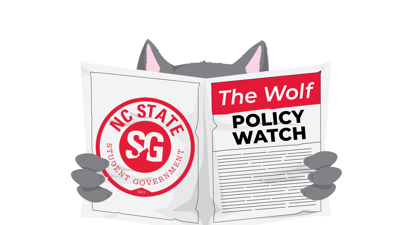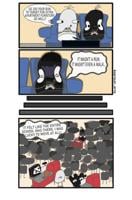Raleigh provides some access to public transportation in the form of GoRaleigh buses and train rides a few times a day from Amtrak, but these options are not equal to the growing population. According to data from the 2020 Census, Wake County is gaining approximately 62 new residents a day and is the third-fastest-growing county under a million people. Now, the county is larger than one million residents. Based on the same data, most residents are commuting alone. Adding a commuter rail to the Triangle would give a needed alternative to the current options.
These new residents will create big congestion problems on existing highways and streets in Wake County, where people already spend on average 20-24 minutes per day commuting. High numbers of single riders also contribute to more carbon emissions and poor air quality. Congestion is also unlikely to improve with more people on the road every day. To support this population growth, state and local governments have to make public transportation a priority, such as commuter rails.
Homeowners are now living further from downtown Raleigh, which often means even more driving. Based on tax records from October 2021 to March 2022, the majority of single-family homes purchased in Wake County were in Fuquay-Varina and Wake Forest. These communities already have fewer connecting bus lines.
A commuter rail has been discussed for North Carolina for years because of its many benefits but does not yet exist in the Triangle. Building a commuter rail will give residents the option to get to work without using congested roads during peak hours, which will benefit all drivers. Switching to public transportation for a 20-mile commute every day can also save around 48,000 pounds of carbon dioxide emissions from going into the atmosphere.
Rail travel is also more affordable than driving. On Charlotte’s commuter rail, a round trip is only $4.40, close to the same price of just one gallon of gas. Public transit investment also encourages local consumer spending and downtown revitalization. Someone walking 10 minutes from work to their commuter rail stop may be more likely to stop in a local bakery than someone in a car that goes straight from work to home. Individuals without cars have more access to jobs and other essential resources with a connection to a commuter rail.
Since this spring, GoTriangle has been performing a feasibility study for a commuter rail connecting several cities between Clayton and Durham. Durham and Orange counties have already experienced a $157 million failure of a commuter rail project in March 2019 due to a lack of support from Duke University and existing rail lines owned by Amtrak.
To make the Triangle’s next attempt at commuter rail successful, the federal, state and local governments need to work in partnership with universities and the broader community. This means coordination and funding. Already, the recent infrastructure law passed by Congress allocated over $30 million between Durham and Wake counties. Wake County voters have also approved a half-cent sales tax increase to fund public transportation projects, which shows the voters’ commitment to the commuter rail dream.
Building a commuter rail is not a cheap endeavor, as seen with Durham’s disappointing false start in 2019. This year there have also been more discussions about crime on public transportation. Some of the rises in crime may be attributed to privileged riders opting out of using buses and trains because of working from home or using their resources to travel alone. The price and other concerns do not negate a commuter rail’s many benefits.
The more people use public transportation, the better it can be. Adding rail travel to daily life will be a big change, but with work to inform the public and cooperation between every involved party, the dream of a commuter rail can be made a reality. Based on the current feasibility study, a commuter rail could be up and running by 2030, but everyone will need to be on board for that to happen.
For more information about how NC State Student Government is working towards alternative transportation or to get involved, contact [email protected].




(0) comments
Welcome to the discussion.
Log In
Keep it Clean. Please avoid obscene, vulgar, lewd, racist or sexually-oriented language.
PLEASE TURN OFF YOUR CAPS LOCK.
Don't Threaten. Threats of harming another person will not be tolerated.
Be Truthful. Don't knowingly lie about anyone or anything.
Be Nice. No racism, sexism or any sort of -ism that is degrading to another person.
Be Proactive. Use the 'Report' link on each comment to let us know of abusive posts.
Share with Us. We'd love to hear eyewitness accounts, the history behind an article.